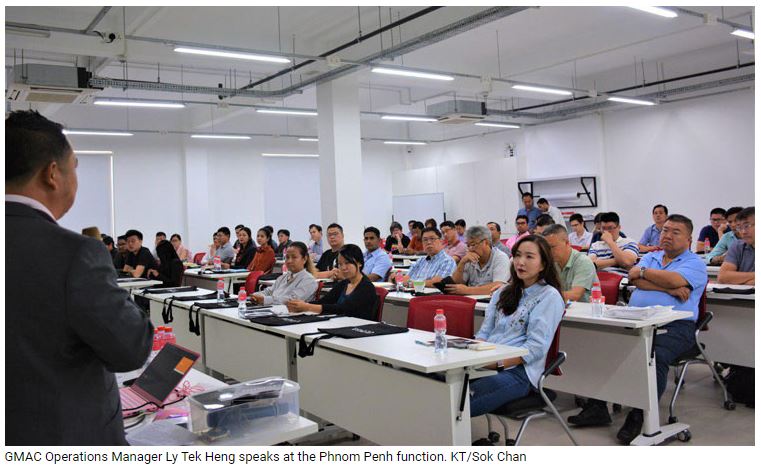Cambodia: Textile factories to enter 4.0 era
Global fashion-technology platform Zilingo has collaborated with the Garment Manufacturers Association in Cambodia (GMAC) and the Cambodia Garment Training Institute (CGTI) to bring a new form of digitisation to Cambodia’s garment factories.
Zilingo, an India based firm provides global fashion-technology production software and technology. Leading solutions that allow factories to maintain their position as major players in the fashion industry.
Zilingo’s presence in Cambodia is to introduce proprietary production software which will help Cambodia’s garment factories increase efficiency and reduce defects. The software allows factories to use real-time production data to produce actionable performance reports that will help factories improve efficiency and productivity.
The software is stated to increase a factory’s production efficiency by 10 to 12 percent, by giving management real-time access to data on a smartphone, laptop or tablet, said Sosakol Yin, business development manager of Zilingo.
“We are excited that the GMAC has provided us with a platform and opportunity to showcase our solutions and engage with Cambodian businesses and key stakeholders to share how Zilingo can help them increase their production efficiency by automating operations on the factory floor,” said Yin.
He said that the software will assist in removing pen and paper from the production line as the software automatically records production data and generates actionable reports. Yin added that it also allows for quality control and production staff to identify garment defects abd other faults.

“If customers want our system, we can sell to them for $50 a month per garment line, but they will have to buy the equipment to connect with the software such as monitor screens and tablets. We can also provide this as whole package, but the factory will pay us $70 a month,” Yin added.
The GMAC operations manager Ly Tek Heng, said that the GMAC has invited Zilingo to share its new technology system in garment, shoe and bag factories. He said that when the GMAC’s 600 members use this technology, it will help with competitiveness and productivity.
“We do not have the detail on how many percent benefits will be added from this technology as it is new and we have to use the system first. However, this system has been used by India, Sri Lanka, Indonesia, Vietnam and Bangladesh,” Mr Ly said.
He is optimistic that when companies use this technology for at least two years, they will get to a breakeven point and cover the initial cost of the technology investment. He added that if one factory has 10 production lines, they will pay about $500 per month. “It is a good start,” he added.
Zilingo has enjoyed strong ties with the GMAC and was invited by Kaing Monika, the GMAC’s deputy secretary general, to show how to harness the technology to bring factories in Cambodia onboard the digital revolution and maintain their position as major players in the fashion industry.
“In the Industry 4.0 era, we are observing the progressive pace of automation and digitisation across our factories. Automated machines are increasingly being used in most factory processes, including designing, pattern making, cutting, printing, embroidery, sewing and quality control,” said Kaing.
He stressed that digitisation is essential across the garment industry. Cambodia must respond to this challenge at a faster pace to transform the workplace and workforce.
The introduction of the software is part of Zilingo’s plans to launch in Cambodia as a key market, with a vision to empower fashion businesses with unprecedented access to a transparent supply chain solution.
Source: https://www.khmertimeskh.com/50679707/textile-factories-to-enter-4-0-era


 Thailand
Thailand




